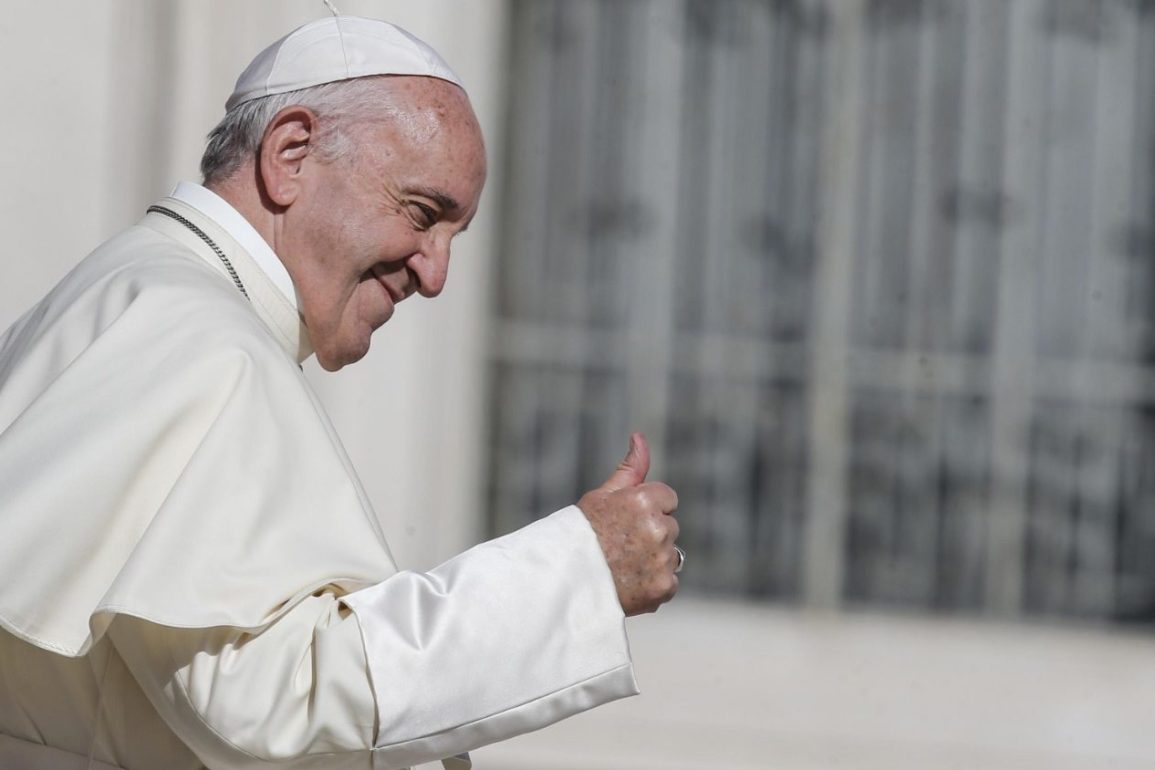On Monday, December 20, 2021, Mexican Father Mario Arroyo Martinez shared with Exaudi’s readers his weekly article in “Theology for Millennials” entitled “Francis’ 85 Years,” in which he reflects on the life of Jorge Mario Bergoglio-Pope Francis after he turned 85 on December 17.
* * *
Jorge Mario Bergoglio turned 85 this past December 17, Benedict XVI’s age when he renounced the papacy, almost Saint John Paul II’s age when he died (84 years and 11 months). As can be seen, it’s a crucial age. However, despite his recent surgical intervention and that he has a lung functioning at half capacity — a lobe was removed from his right lung when he was 21 — he seems to be in top shape, 100% involved in humanity’s grave problems and the challenges of the Church.
In fact, Pope Francis has entered the Church again in the great contemporary debate, being a voice that is heard in regard to climate change or the crisis of migrants, to name only two headings where his intervention has been decisive and widely recognized. He has confronted the crisis of pederasty in the Church with humility and decisiveness and has not limited himself to be a fire-extinguisher in this aspect, as he has relaunched the Church in a determined apostolate: the Church “going forth” as he likes to call her and, in that attempt, he has returned to the essential, to proclaim Jesus of Nazareth with new zest to a tired world.
With his gestures, Francis has given a new physiognomy to the papacy. In fact, the images are paradigmatic of a Pope washing the feet of a group of delinquents in a prison, or conversing with the homeless on his birthday, or kissing the feet of a group of African leaders, imploring them to put an end to a fratricidal war. Let’s say that, in eloquent gestures, his pontificate doesn’t fall short, on the contrary. And those gestures are not part of a studied media campaign, but are genuine, as he already lived them as Archbishop of Buenos Aires. Only that he now has taken them to the See of Peter, where they have had a multiplying effect, which confronts the Church herself so that we all feel inclined to come out of our comfort zone to encounter a suffering brother; we all feel interpellated to contribute to make this world a better place, fighting against the structures of sin or, positively, building the civilization of love.
Since the beginning of his pontificate, Pope Francis has also kept very present those of his age. He has denounced forcefully the “throwaway culture,” the elderly being the first to be forgotten or relegated by a society that is markedly individualistic, where the “I” and its appetites is what counts. Paradoxically, the protagonist is now an elderly man; an elderly man with an immense capacity to convoke young people through the World Youth Days (WYD) over which he has presided. An elderly man with a young soul who cries out so that hope is not torn from young people, who addresses a world where so often young people face life with a tired heart — the high and growing rate of juvenile suicides does not allow for an exaggeration of this point An elderly man who invites young people to engage in dialogue with their grandparents so that they are conscious of their roots, and not rootless and, hence, easily manipulated.
For all of the above, we have only to thank Francis for his fidelity to God, to the Church <and> to humanity. To thank him and, why not?, to admire his spiritual vitality, his drive, his direct, clear, and hopeful approaches. He is, without a doubt, an example of a fulfilled life. From the height of his 85 years, his whole life can be seen with a certain perspective, and it can be concluded that it has been worthwhile, that all that effort and sacrifice has produced two closely related realities: that of Jorge Mario Bergoglio is a happy life and a fruitful life. Thus he shows us how a happy life and a fruitful life go hand in hand. The secret? A life of faith, hope, and charity.
What can we do, consequently? Thank God for having given us a shepherd such as Francis, with his life, which is both happy and fruitful. Pray for him, as the weight of the Church and of the world that has fallen on his shoulders is very great, and we cannot allow him to carry it alone but must be backed by our prayers. “Pray for me” is his insistent petition and we can do no other than respond to it with generosity. And to learn from him how a life of faith is a fruitful life, a life that is worthwhile, a full life, a happy life.
Translation by Virginia M. Forrester










